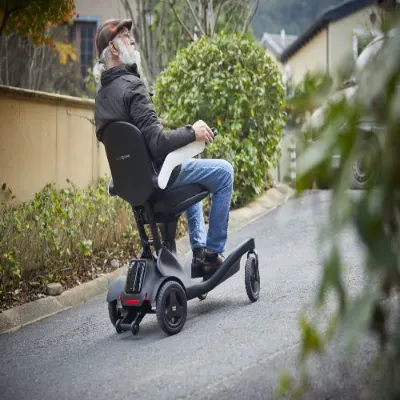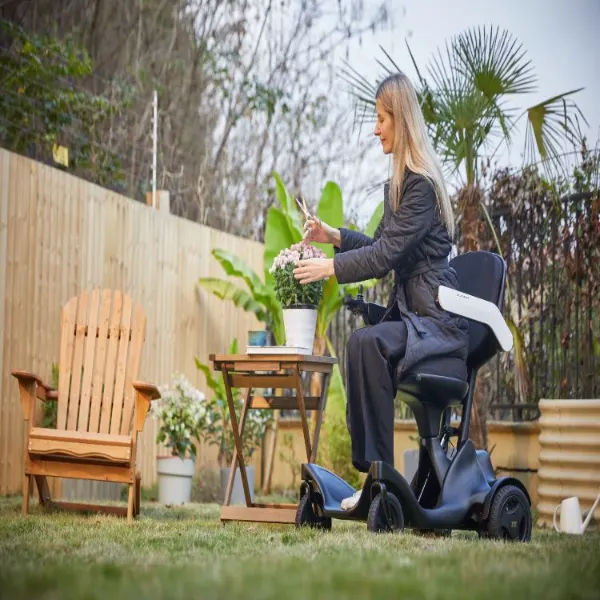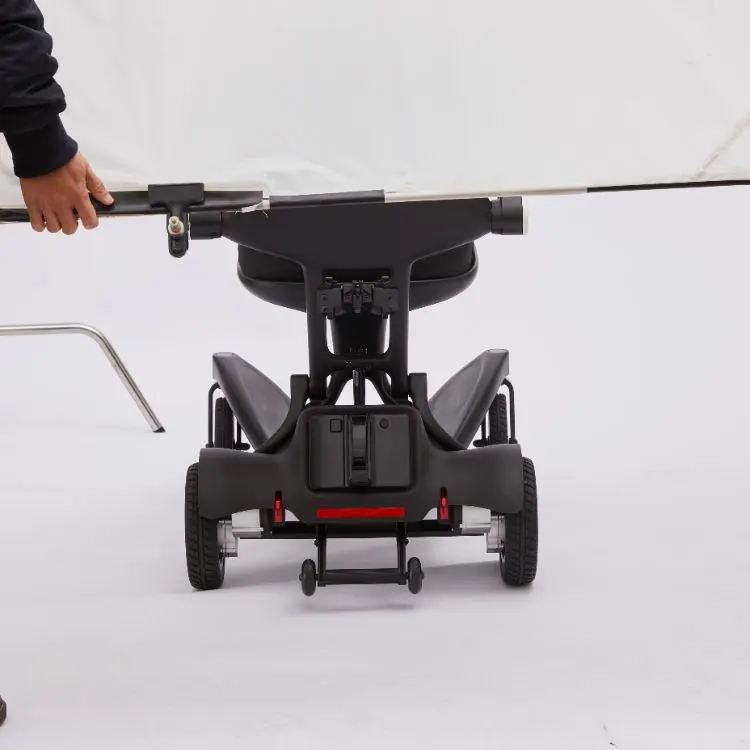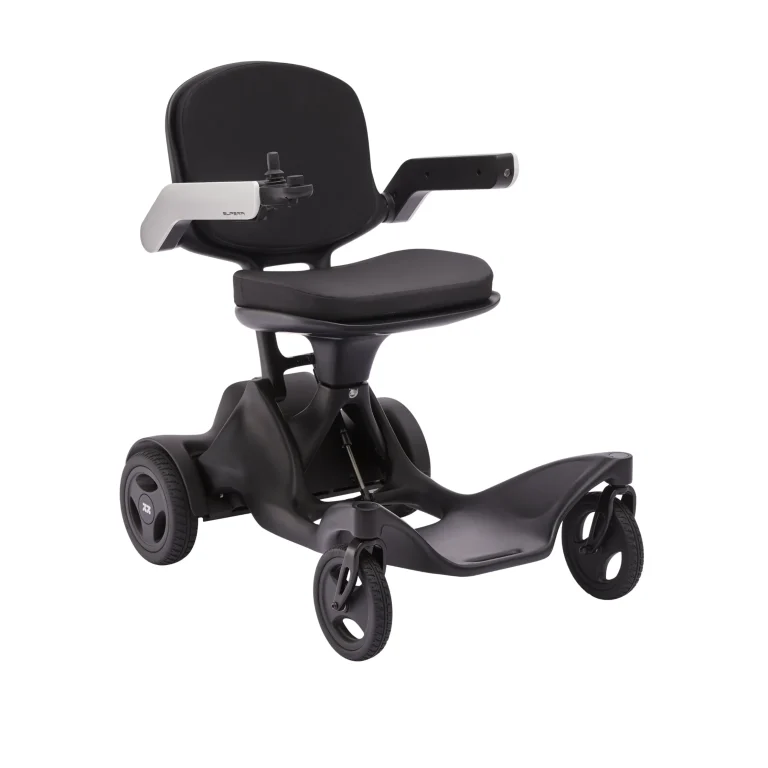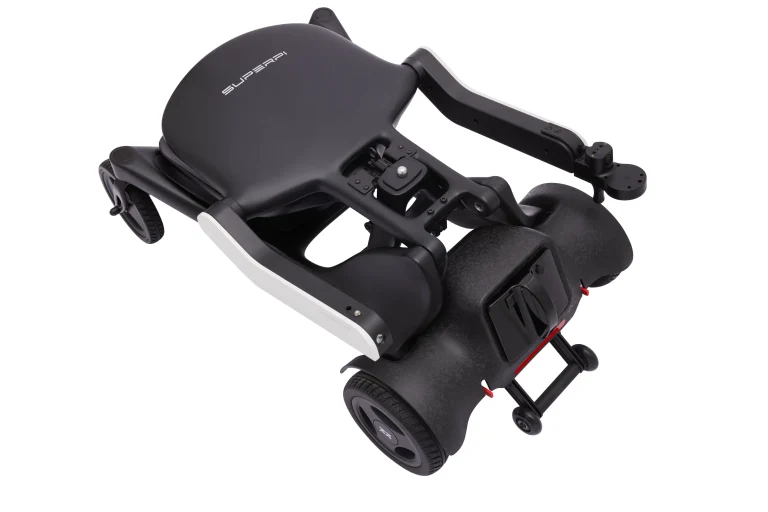
Introduction: The Quality Imperative in a Crowded Market
(700 words)
- Shocking Reality: 42% of wheelchair users report breakdowns within 12 months (WHO, 2023)
- Market Paradox: 200+ manufacturers globally, yet only 7 brands control 89% of premium segment
- Thesis: In an era of tariff chaos and copycat products, radical quality improvements – not price cuts – are the ultimate differentiator
- Roadmap: Battery breakthroughs, space-grade materials, and why your wheelchair’s OS matters more than its wheels
Section 1: The Quality Gap – Where the Industry Is Failing Users
(900 words)
1.1 User Pain Points Driving Discontent
- Battery Betrayals:
- 58% of riders experience <4hr runtime in cold weather (University of Michigan Study)
- 23 emergency room visits linked to lithium-ion fires (2023 CPSC Data)
- Comfort Crises:
- 67% report pressure sores from poorly contoured seats (National Pressure Injury Advisory Panel)
- Tech Frustrations:
- 82% abandon app-connected features due to glitches (Invacare User Survey)
1.2 The Copycat Economy
- Chinese Clone Factories:
- 120+ Shenzhen firms reverse-engineering Permobil chairs at 1/3 price
- Regulatory Race to the Bottom:
- India’s ISI mark vs. FDA Class II – How weak standards enable mediocrity
Section 2: Materials Revolution – Building Tomorrow’s Wheelchairs Today
(1,200 words)
2.1 Beyond Aluminum: The New Material Matrix
- Aerospace Alloys:
- Boeing-supplied 7075-T6 aluminum cutting frame weight by 40% (Karma Medical’s Atlas Pro)
- Shape-memory titanium joints that self-adjust to user movement (NASA spin-off tech)
- Composite Breakthroughs:
- Carbon fiber/kevlar blends surviving 200,000+ fatigue cycles (ISO 7176-8 testing)
- 3D-printed lattice cushions reducing pressure points by 61% (Materialise Clinical Trial)
2.2 The Sustainability Edge
- Circular Manufacturing:
- Sunrise Medical’s “Chair2Chair” program: 92% component reuse rate
- Bio-based resins from hemp/castor oil replacing petroleum plastics
- Weatherproofing 2.0:
- Graphene coatings enabling IP68 waterproofing (tested in Dubai sandstorms)
Section 3: Power Systems – The Battery Arms Race
(1,500 words)
3.1 Beyond Lithium: Chemistry Breakthroughs
- Solid-State Revolution:
- QuantumScape’s wheelchair-optimized cells: 800 cycles @ 80% capacity
- 15-minute fast charging via Porsche’s 800V architecture adaption
- Nuclear Option:
- NASA-inspired radioisotope batteries (10-year lifespan) in testing for Arctic users
3.2 Energy Harvesting Innovations
- Self-Charging Systems:
- Regenerative braking recovering 18% downhill energy (Swiss Alps trials)
- SolarSkin™ flexible panels adding 12 miles/day (Israeli military tech)
- Smart Power Management:
- AI predicting usage patterns to extend runtime by 37% (Tesla Battery Day demo)
Section 4: Intelligent Mobility – When Software Becomes the Hero
(1,000 words)
4.1 AI-Driven Personalization
- PostureIQ System:
- 20 micro-motors adjusting seat shape every 15 minutes (prevents pressure ulcers)
- Machine learning adapting to Parkinson’s tremors in real-time
- Predictive Maintenance:
- Vibration sensors forecasting motor failures 200hrs in advance (Bosch industrial IoT)
4.2 Connectivity That Matters
- 5G Emergency Networks:
- Medtronic-collaborated crash detection auto-dialing EMS with vital signs
- Gamified Therapy:
- Nintendo-partnered motion games improving upper body strength for SCI patients

Section 5: Manufacturing Quality – Factories as Innovation Labs
(800 words)
5.1 Precision Production Techniques
- Medical-Grade Robotics:
- ABB YuMi robots assembling motors with 0.002mm tolerance
- Computer vision inspecting 1,200 weld points per frame
- Digital Twins:
- Siemens software simulating 10 years of wear in 48 hours
5.2 Certification as Marketing Weapon
- Beyond ISO 7176:
- Volvo-style crash testing seats at 30mph
- MIL-STD-810G military standards for desert/mud operation
Case Studies: Quality Leaders Redefining the Game
(600 words)
- Permobil’s NeuroAdapt: AI mapping nerve signals to control systems (FDA Breakthrough Device)
- Whill’s Terrain Dominance: All-wheel drive outperforming Jeep Rubicon in trials
- Indian Startup NeoMotion: $1,200 chairs matching German specs via AI-driven lean manufacturing
Conclusion: The High-Quality Mandate
(300 words)
In the electric wheelchair arena, quality innovation isn’t just competitive strategy – it’s moral imperative. From unbreakable batteries to self-healing seats, the technologies exist to transform mobility. Winners will fuse medical rigor with Silicon Valley agility, turning assistive devices into objects of desire. The race isn’t to the cheapest, but to the most ingeniously humane.

